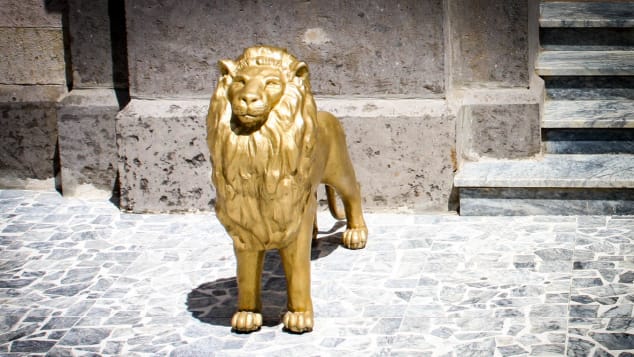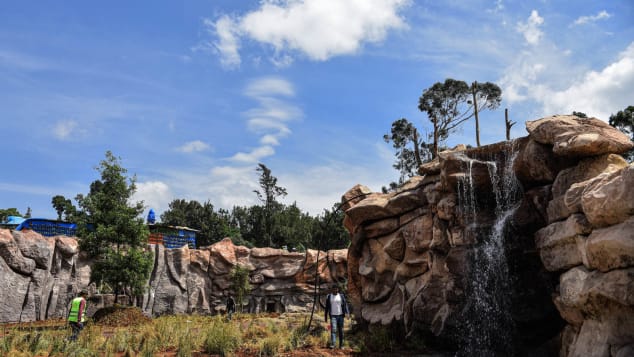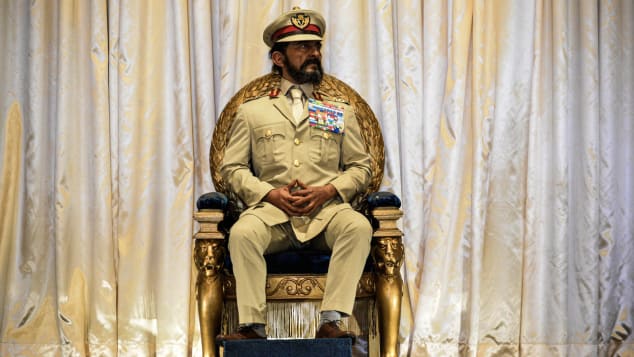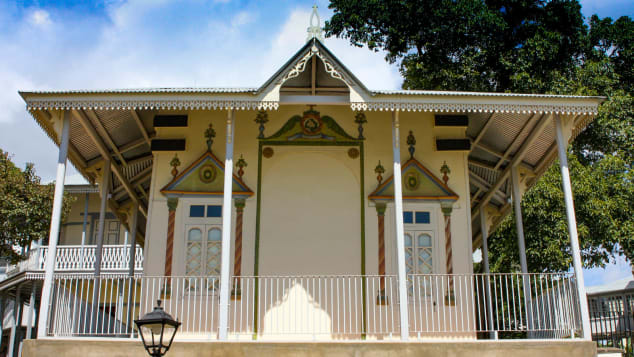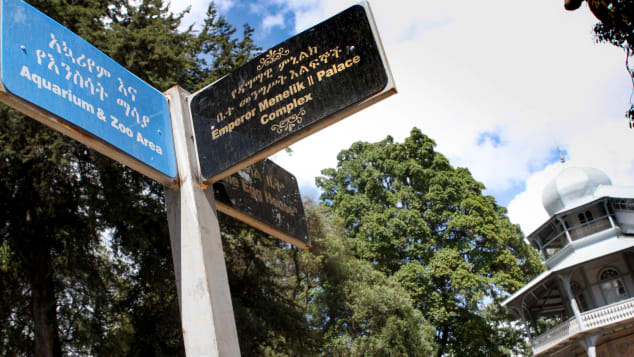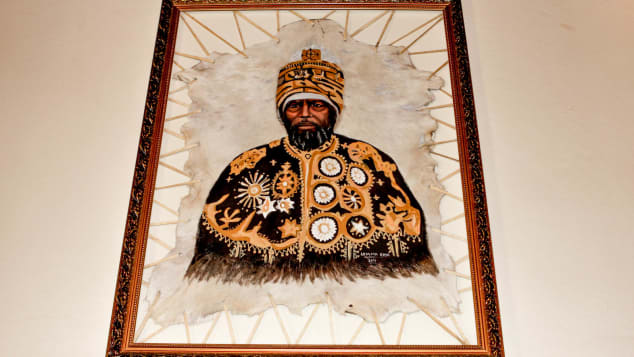By: Metta-Alem Sinishaw
Washington, DC Metro Area
Traditionally, Ethiopia pursues conservative foreign policy, often by aligning its interests with that of powers. The Haile Selassie government pursued political independence, territorial integrity, access to the sea, and non-allied movement internationally while promoting pro-African regional policy. It earned global acclaim, become a diplomatic hub, and a get way to Africa, including hosting African Union (AU) and Economic Commission for Africa (ECA). Powers and multilateral agencies consult Ethiopia on regional peace, security, and immigration matters.
The military government followed similar policies but added socialist ideological orientation with strong affiliation to the former Soviet Union (USSR.) The end of the cold war and the collapse of the military regime enabled the Ethiopian People Revolutionary Democratic Front (EPRDF) to shift foreign policy from socialist to liberal orientation and single handedly defined national security priorities, whose myopic measures rendered Ethiopia landlocked, dismantled national army and encouraged Eritrean aggression.
EPRDF portrayed itself as progressive force with commitment to democratization and poverty eradication internationally and as grantor of collective security in the region. The substantial political and economic assistance it garnered enabled the Tigray People Liberation Front (TPLF), the core-governing group of EPRDF, to maintain dominance over the Ethiopian power structure. However, delayed democratization, marred by corruption, angered Ethiopians to replace the TPLF’s administration by Abiy Ahmed, leader of the Oromo Democratic Party (ODP.)
The U.S. – Iranian nuclear accord triggered threat of Iranian expansion to the Red Sea to which Saudi and Emirates, the two leading Gulf countries precipitated vying for proximity to the Yemen conflict. As rivalry intensified, search for military bases, defense partnership, investment in commercial ports along the Red Sea shipping lanes and acquiring agricultural land multiplied to which economical constrained Horn countries became vulnerable, including shifting abruptly their alliances. Saudi and Emirates forced Djibouti, Sudan, and Eritrea to sever their relations with Iran, countered Turkish and Qatari penetration in Sudan and Somalia, and aspired to mitigate tension between Ethiopia and Egypt.
The Gulf has long relations with Ethiopia, since the first hijra, during the Aksumite Empire, but Ethiopia’s ability to handle Gulf’s competition remains huge concern as the new administration engages in a radical foreign policy shift with unprecedented proximity to the Gulf royals. The rivalry has been making relations among Horn countries more complex, demanding resilient policy, smart strategies, and tough negotiations. The lack of clear foreign policy, intra-ethnic squabble among Ethiopian political actors, and strong ethnocentric view of some of the Ethiopian diplomatic mission heads, devoid of national agenda, only exacerbates Ethiopia’s predicament.
Although there is not published policy prescription yet, Abiy seems to follow TPLF’s footsteps. However, regional integration, engagement with diaspora, and building Navy represent major foreign policy departures.
Engagement with diaspora mainly focused on the repartition of illegal immigrants from Gulf countries, often imprisoned in deplorable conditions. Abiy succeeded in improving the working condition and remuneration of laborers but lost the support he gained from diaspora residing in western countries due to the lack of structural transformation. Although not yet implemented, liberalizing the financial sector could bridge the gap with diaspora on whose remittance the country heavily depends on. Although the free movement of Africans is the first step in the right direction, his regional integration initiative lacks shared political framework, economic model, and institutional platform. Building Navy anew could advance Ethiopian geopolitical interest but will consume Ethiopia’s meager resources and antagonize with some countries.
While the opportunities Gulf rivalry brought remains mainly transactional economic and port services, the challenges it poses are maintaining Ethiopian long held neutrality, security, the Nile hydro politics, and democratization.
- Could Ethiopia maintain its traditional position of neutrality?
Despite consistence pressure, Ethiopia resisted taking sides in the Gulf rivalry, at least publicly, and avoided entanglement, became a recognized guarantor of collective regional security in peacekeeping in Somalia, Darfur, Sudan, and South Sudan. Although Abiy reaffirmed unwavering commitment to pan-Africanism, increasing accumulation of Turkish military capability with Qatari capital in Sudan and Somalia on one hand, and Saudi and Emirates control of port services in Djibouti, Eritrea, Puntland, and Somaliland, on the other hand, may have forced Ethiopia to compromise its neutrality.
The signature of the Ethiopia and Eritrea peace agreement outside Africa, in Saudi, is indicative of growing Gulf’s dominance in the Horn and the shift from multilateral commitment. Abiy’ first official visit outside Africa, to Saudi and to Emirates, and the subsequent investment and oil from Emirates and Saudi, respectively, is indicative of Ethiopian inclination, which forced many to doubt Ethiopian neutrality.
Despite Ethiopia’s proximity with Saudi and Emirates, however, Ethiopia exchanged head of state visits with Qatar. Abiy visited Qatar the same day he visited Emirates to demonstrate neutrality and deter Qatar’s alleged communication with TPLF, a nearly breakaway Ethiopian northern region. Rival groups consider Ethiopia strategically too important that they tolerate Ethiopia’s occasional flirting with other actors. As rivalry continues, Abiy will soon learn, if he has not already, from al-Bashir, whose continued neutrality led to his eventual demise.
In the likely event of abandoning its longstanding tradition, Ethiopia would lose its credibility and face intense pressure, like Sudan, Somalia, and Eritrea, to stand against Yemen, a country with deeper historical ties than any other Gulf countries, who fought against the Somalian irredentism on the side of Ethiopia. Abiy’s anti-war message that asked Yemeni protagonists “Why do you turn your children into orphans?” has lacked clarity and diplomatic clout which some observers consider as a deliberate effort to hide Ethiopia’s abandonment of its neutral position.
- Investment and economic development
Gulf’s asymmetrical and transactional engagement does not respond to Ethiopia’s current need of multilateral long-term commitment to development. Emirates abrupt termination of support to the Somalian hospital, following a political crisis, shows the magnitude of predicament.
In response to Gulf’s food security objective, Ethiopia offers agricultural land and could be more beneficial if it protects indigenous communities, mitigates environmental concerns, and avoids backdoor deals. If synchronized with small scale farming, the impact of foreign direct investment and diaspora driven technology transfer, when mixed with traditional know how, could increase agricultural productivity, create employment, and boost the national economy.
Emirates did not respond favorably to the Ethiopian call for investment previously, but it has now invested in agriculture and hold large venture in real estate and infrastructure that brings fortune to some while evicting others. Qatar strategizes to invest in Ethiopian food industry, arable lands, livestock, tourism, real estate, and energy sectors. Saudi is the second largest investor, hosts about 400,000 laborers, leases large agricultural land, influences Ethiopian economic and politics strongly via Mohammed Alamoudi, the largest private sector employer in Ethiopia with massive investments in the banking, agriculture, cement, and gold mining, making Saudi the primary export destination and source of Foreign Direct Investment.
With more than half of its $6 billion African investment in Ethiopia, higher than its combined investment in its closest allies, Somalia and Sudan, Turkey has historical and economic interest and could invest further in other sectors and bring expertise in agriculture and dairy.
However, history of authoritarianism, high debt ratio, political instability, endemic drought, and animosity with some of the neighbors could render current outlook complex in attracting investments. Gulf investments are rarely private and increases vulnerability, which undercut Ethiopia’s ability to pursue independent foreign policy.
- Access to the Sea and Port Services
Ever since Ethiopia became landlocked under TPLF, lack of access to the Sea and port services have been undermining Ethiopian growth and competitiveness and exacerbating vulnerabilities. Ethiopia’s engagement with Emirates brought significant foreign investment in oil pipeline and road transport to link Ethiopia to Eritrea and Somaliland, respectively, offering competitive price with alternate ports.
Ethiopian 19% stake in the Berbera Port would diminish dependence on Djibouti. However, it reduces optimism in Ethio-Eritrean agreement, irritates relations with Djibouti and China due to declining revenue from their investment in Doraleh port. While Ethiopia’s agreement with Kenya on the Lamu Port-South Sudan-Ethiopia-Transport (Lapsset) remains unrealized due to funding and security constraints, the shares Ethiopia reportedly gained in Port Sudan remains unknown.
Abiy introduced ambitious plan to build Naval forces without specifying its location and strategy. If implemented, the Navy will supplement Ethiopia’s tested defense forces and promote its geopolitical interest but entails substantial economic and security implication. Economically, while building Navy anew takes huge investment and longer periods, partnership with the French, a political heavy weight, could entice another string in Ethiopia-Djibouti relations.
As for security, building a Navy in a region with a history of animosity could worsen Ethiopia’s predicament and adversely affect relations with neighbors, especially with Eritrea and/or Somalia. Nevertheless, it provides powers with low cost anti-piracy force to maintain collective security in the Red Sea shipping lanes. If implemented, the Navy will significantly advance Ethiopian geopolitical interest and enable to maintain Ethiopian hegemony on regional security.
- Domestic Security
The new administration has not been successful in maintaining security and promoting the rule of law and security remains major constraint for Ethiopians of all lifestyles. Citizen attempting to exercise their civil and political rights were detained, killed, and displaced, including burning of churches and religious unrest, a strong signpost that Ethiopia is slowly returning to the old habits of authoritarianism
Ethnic tension and domestic instability together with increasing price of living installs social anxiety. If the economic challenge persists, the Somalia based Islamic State could easily radicalize the unemployed youth, aggravate instability by deepening the ethnic and religious cleavage, and undermine Ethiopian regional role as grantor of collective security.
Unfiltered proximity to countries pursuing religious based foreign policy could exacerbate Ethiopia’s domestic instability. Saudi and Qatar are accused of supporting “Wahhabism” and Muslim Brotherhood, respectively, which threatens to uproot traditional Sunni moderate religious groups.
The administration’s alignment with foreign rival forces would unavoidably bring Gulf’s meddling in collusion with Ethiopian political actors, characterized by entrenched ethnic animosity and contradictory interests that have a history of cooperating with foreign assailant when they felt marginalized, real or perceived.
Abiy has been accused of not addressing the underlying causes of the revolution and maintaining the apparatus of the oppressive regime intact with personality changes at the highest echelon of state power. The idea of unifying the incumbent ethnic based governing coalition could appease growing frustration among his supporters but antagonize him with decrying ethno nationalists.
Contradictory desire between national and ethnocentric forces seems the major hurdle preventing Abiy from taking a compromise. His seemingly neutral position and continued silence in the face of persistent violence caricatured him accomplice to the ethnic radicals despite nationalist rhetoric.
His most daunting opposition comes from the internal dynamics from Tigray, Amhara, and Oromo regional states. Tigray is the base of the restive TPLF, which allegedly maintains contact with Turkey and Qatar and continues staging destabilization efforts using surrogates. The Amhara regional state, his former stronghold state, has gradually shifted its support due to continued occupation of its territories by TPLF, lack of constitutional reform, controversy surrounding the June 22 massacre, and incarceration of its security leadership. The Oromo regional states, his home state, hosts virulent radical ethnic entrepreneurs working closely with TPLF and other moderate ethno-nationalist groups engaging in internal friction for dominance.
- Regional Stability
Ethiopia has been the elephant in the room in the Horn affairs not least because of its failure to realize the magnitude of the unfolding regional dynamics and shifting U.S. policies, but rather due to the desire to maintain neutrality and increased domestic instability.
Ethiopia’s initiative of regional economic integration aims to mitigate the adverse effects of Gulf’s transactional relations. However, it is unclear whether the initiative is harmonized with that of the Inter-governmental Authority on Development (IGAD) and the East African Community (EAC) programs that have similar objectives of creating common market, supported by the European Union to contain immigration.
Although free movement of Africans by dismantling the visa requirement is the first step in the right direction, Abiy’s integration initiative did not followed by known free movement of capital and goods or services, which requires clearly articulated political framework and economic modality. The initiative seems to lack strategic depth as it did not factor the economic, peace, and security constraints member states are facing. The idea of regional integration, without developing shared interest and institutional arrangement, remains a nightmare for a region otherwise characterized by intra-ethnic conflict, boundary claim, and instabilities.
No positive outcome to date stemmed from Abiy’s increased regional shuttle diplomatic efforts, save the mediation effort in Sudan that resulted in the cohabitation of Military and Civilian coalition under fluid condition. Contrary to his aggressive media campaign, his actions brought additional concerns as renewed relation with Eritrea is perceived as an abandonment of Djibouti and Sudan, who maintained hostile relation with Eritrea, until recently.
- The Great Renaissance Ethiopian Dam (GRED) and the Nile hydro politics
Due to the Anglo Egyptian colonial legacy, Egypt has never had robust African policy and its public lacks knowledge of Africa and Africans. Its foreign relations narrative depicts Ethiopia as economically poor, politically instable, and strategically unable to develop its water resources. Egypt has effectively exploited its proximity with the West, Sudan, and the Gulf to undermine Ethiopian efforts, including supporting rebel groups since the 1950s, directly and indirectly. In the backdrop of Egypt’s aggressive diplomacy, Ethiopia build stronger partnership among the Nile upper riparian countries, brand GERD as an African dam, generate domestic finance, exploit the Arab spring, and rewrite the Egypt-African exploitative historical relation irreversibly.
Ethiopian excellent strategy brought Sudan, who has been supporting Egypt, often against Ethiopia, and led to Egypt’s accusation of Sudan for favoring Ethiopian perceived intent of quickly filling the dam, deplete the flow of the Nile River, and allow Sudan to retain its full share. Sudan maintains cordial relations with Ethiopia, protect the dam, and even arrested an Eritrean militant group that targeted the dam.
Egypt’s recognition as intermediator between the West and the Arab world was instrumental to prevent Ethiopia from accessing western and multilateral financing to not only the Nile River but also other water resource projects remotely linked to Nile.
Egypt has been cultivating strong relations with each of Ethiopian neighbors but failed to gain air force base in Sudan and South Sudan, at least until now. When Eritrea and Ethiopia were in hostility, Egypt and Eritrea, members of the Saudi coalition, have maintained strong bilateral relation amid the tense relations among Egypt, Ethiopia, and Sudan over GERD, implying that the reconciliation with Eritrea minimizes Egypt’s potential partners.
Egypt’s strategic depth made its ambivalent position acceptable to both Gulf and Iran that Saudi and Emirates consider archenemy. Egypt and Iran represent two sides of the core Islamic agenda: On one hand, Egypt stands with Saudi and Emirates and strongly opposes Turkey and Qatar for supporting Muslim Brotherhood that it considers as existential threat, and on the other hand, it shares Iran’s strategic objective on supporting Syria and oversighting Israeli’s nuclear program. Egypt accuses Israel of selling the Spyder-MR air defense system to Ethiopia to shield the GERD project and demand not to sell similar products and services in the future. Moreover, Egypt represents the military powerhouse of the Gulf but refused to deploy its troops and provided only symbolic military advisors to legitimize Gulf’s operation in Yemen.
Saudi and Egypt have controversial claim on Tiran and Sanafir islands and while Egypt hopes to influence Ethiopia through the Gulf, especially via Emirates on whom Ethiopia becomes increasingly dependent, Saudi leveraged Ethiopia to influence Egypt in the past.
Egypt considers Ethiopian development efforts on the Nile river as existential threats, declares that all options are on the table, and warns that if Nile’s water “diminishes by one drop, then our blood is the alternative.” However, the threats of war have significantly reduced, especially after the May 2018 tripartite agreement and Abiy’s affirmation to Egyptian, upon responding to the request of the Egyptian President, in which he said, “I swear to God, we will never hurt you” following which Ethiopia reduced the number of planned turbine on the dam at least by three. Despite ongoing engagement, there is no consensus on the length of time that should take to fill the dam and on revising the 1952 agreement that awarded much of Nile’s water to Egypt.
Ethiopian counter against strategic perceptive Egypt should include aligning with Turkey, Egypt’s bitter rival, strengthening relation with Sudan, and deterring Egyptian penetration in Ethiopian neighbors. Egypt is likely to exploit Ethiopian internal turmoil for destabilization and undermine Ethiopia’s tranquility needed to complete the GERD project, which calls for strategic oversight over Ethiopian growing ethnic entrepreneurs and media outlets that promote ethnic animosity and exacerbate political instability. However, only time will tell whether Ethiopia could mend its fractured ruling party, consolidate its opportunistic opposition, minimize its vulnerability, and complete the GRED project that Egypt continues undermining.
- Delayed democratization
Despite initial efforts, Abiy did not introduced fundamental policy changes but become closer to Gulf absolutists’ monarchies whose power base pillar are increasingly threatened by democracy, especially after the Arab spring during which Saudi and Emirates opposed Egyptian revolution, supported the overthrow of Egyptian president Morsi, and suppressed the Sudanese revolution. They also meddled in the Somalian presidential election, strengthened the Eritrean strongman, in power since 1991, allegedly support Yemen’s secessionist movements and to two of Somalia’s broke way regions, which suggests that Ethiopia cannot be an exception.
In a glaring defiance to public demand, Abiy has not yet introduced comprehensive road map on how he will transition Ethiopia towards democratization. Despite international applaud, improvement on human right, civil liberties, and political openings seem stagnating, which demonstrate Abiy’s reluctance to structural reforms and the abandonment of his promise. Less than seven months for the election, the election bill remains unpublished after its approval and it is still unclear whether election will be held on schedule as more than half of the opposition groups are complaining about undue requirements and exclusion.
The administration has been allegedly purging perceived rivals under the pretext of unsuccessful coup d’états, which raises credibility concern on its commitment to democracy. Legal experts claim that the anti-terrorism law, the suspended repressive tool of the previous administration, whose replacement draft is awaiting parliament’s approval has been shelved, and the old law is now in full application to incarcerate perceived opponents. In the face of more fractured ruling party, political instability, and fictive opposition, no alternative force emerged which makes the prospects of democratization unlikely.
Ethiopia’s continued focus on ethnic enclave diminishes economic opportunities for its growing population and undermines social mobility as security and instability hamper physical mobility even within Ethiopia. Ethiopia’s relatively giant economy could serve as pragmatic platform for regional integration, but only if Ethiopia could stop its internal bleeding caused by ethnic polarization. The question remains whether a divided country can be internally unified and be integrated with other contiguous countries amid growing ethnic animosities.
If not accompanied with democratization, both liberalization and integration will not serve Ethiopia best. Many suspects that privatization of Ethiopian seasoned and competitive key assets (Ethiopian Airlines, Telecommunication, Shipping lines Agency) in the face of growing instability would only serve to transfer wealth to selected ethnic elites. The country has had a history of hasty privatizations that neither improved citizens’ livelihood nor contributed to national economy due to corruption and lack of accountability.
Gulf’s backdoor agricultural investment with no concern for indigenous communities would only worsen ethnic tension and instability. In the face of mounting instability and human rights violation, cooperation with absolutist Gulf monarchists, partnership with dominant-party promoter China, and growing engagement with autocratic Russia could not warrant transition to democracy but offer an assurance for the reemergence of the next new strongman.
For comments or conversation: mettaalems@gmail.com
The post Ethiopian blurred Foreign Policy and the adverse effect of Gulf Rivalry appeared first on Satenaw: Ethiopian News/Breaking News: Your right to know!.

 Ethiopia Prime Minister Abiy Ahmed has won the 2019 Nobel Peace Prize for “for his efforts to achieve peace and international cooperation, and in particular for his decisive initiative to resolve the border conflict with neighboring Eritrea.”
Ethiopia Prime Minister Abiy Ahmed has won the 2019 Nobel Peace Prize for “for his efforts to achieve peace and international cooperation, and in particular for his decisive initiative to resolve the border conflict with neighboring Eritrea.” According to
According to  Last year’s winners were Congolese doctor Denis Mukwege and Yazidi Kurdish activist Nadia Murad for “their efforts to end the use of sexual violence as a weapon of war and armed conflict.”
Last year’s winners were Congolese doctor Denis Mukwege and Yazidi Kurdish activist Nadia Murad for “their efforts to end the use of sexual violence as a weapon of war and armed conflict.” Addis Ababa, Ethiopia (CNN)Prime Minister Abiy Ahmed of Ethiopia has won this year’s Nobel Peace Prize for his role in ending the 20-year war between Ethiopia and Eritrea.
Addis Ababa, Ethiopia (CNN)Prime Minister Abiy Ahmed of Ethiopia has won this year’s Nobel Peace Prize for his role in ending the 20-year war between Ethiopia and Eritrea.
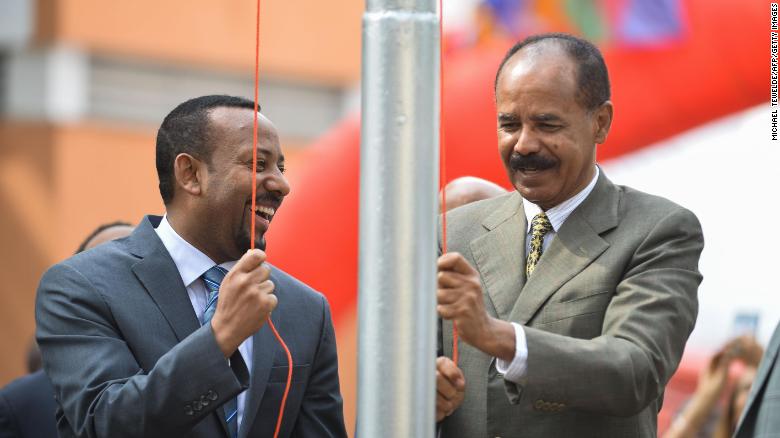




 AMNESTY INTERNATIONAL
AMNESTY INTERNATIONAL Failing to support the movement will have far-reaching consequences for the people in the ‘free world’, more so for the people under authoritarian regimes throughout the globe that emulate the regime.
Failing to support the movement will have far-reaching consequences for the people in the ‘free world’, more so for the people under authoritarian regimes throughout the globe that emulate the regime.

 Cabinet members celebrated Prime Minister Abiy Ahmed at the Office of the Prime Minister this morning for his Nobel Peace Prize achievement. Expressing their admiration for his leadership and the milestone achieved, they gifted Prime Minister Abiy with an inscribed gold necklace. The inscription reads: ‘Truly, Love Wins’.
Cabinet members celebrated Prime Minister Abiy Ahmed at the Office of the Prime Minister this morning for his Nobel Peace Prize achievement. Expressing their admiration for his leadership and the milestone achieved, they gifted Prime Minister Abiy with an inscribed gold necklace. The inscription reads: ‘Truly, Love Wins’.


 Weeks after Dr. Abiy was selected for premiership – mainly by the Oromo and Amhara ruling party members of the EPRDF – he released hundreds of opposition prisoners and began dialogue with arch rival Eritrea. 20 years after the Ethiopia-Eritrea border war began, Abiy brokered a peace deal with dictator Isaias Afewerki and officially reopened relations with Asmara. Meanwhile, he gave alive branch to previously outlawed opposition groups Oromo Liberation Front (OLF), Patriotic Ginbot 7 (PG7) and Ogaden National Liberation Front (ONLF).
Weeks after Dr. Abiy was selected for premiership – mainly by the Oromo and Amhara ruling party members of the EPRDF – he released hundreds of opposition prisoners and began dialogue with arch rival Eritrea. 20 years after the Ethiopia-Eritrea border war began, Abiy brokered a peace deal with dictator Isaias Afewerki and officially reopened relations with Asmara. Meanwhile, he gave alive branch to previously outlawed opposition groups Oromo Liberation Front (OLF), Patriotic Ginbot 7 (PG7) and Ogaden National Liberation Front (ONLF). Nobel Peace Prize for beating swords into plowshares, and spears into pruning hooks
Nobel Peace Prize for beating swords into plowshares, and spears into pruning hooks

 Ethiopian Prime Minister Abiy Ahmed’s Nobel Peace Prize indicates his critical role in building long-term peace in the war-torn Horn of Africa region. He has made important breakthroughs in deeply protracted conflicts, although much remains to be done to institutionalize and sustain these endeavors. Some critics have asked if this recognition came too early, as the 43-year-old Abiy has been prime minister for only 18 months. But as has been the case with a number of awards, such as that given to U.S. President Barack Obama in his first year in office—this honor may be seen as a recognition of and encouragement for a project worth supporting rather than a prize for a job well done.Yet Abiy has also managed real achievements in that short time. The Norwegian Nobel Committee
Ethiopian Prime Minister Abiy Ahmed’s Nobel Peace Prize indicates his critical role in building long-term peace in the war-torn Horn of Africa region. He has made important breakthroughs in deeply protracted conflicts, although much remains to be done to institutionalize and sustain these endeavors. Some critics have asked if this recognition came too early, as the 43-year-old Abiy has been prime minister for only 18 months. But as has been the case with a number of awards, such as that given to U.S. President Barack Obama in his first year in office—this honor may be seen as a recognition of and encouragement for a project worth supporting rather than a prize for a job well done.Yet Abiy has also managed real achievements in that short time. The Norwegian Nobel Committee  In mid-September, Yevarkan spoke at a town hall meeting in a suburb of Tel Aviv called Or Yehuda. Almost everyone in the audience was Ethiopian, with the men sitting on one side of the room and the women on the other. When he addressed the gathering, Yevarkan spoke mostly in Amharic, the official language of Ethiopia.
In mid-September, Yevarkan spoke at a town hall meeting in a suburb of Tel Aviv called Or Yehuda. Almost everyone in the audience was Ethiopian, with the men sitting on one side of the room and the women on the other. When he addressed the gathering, Yevarkan spoke mostly in Amharic, the official language of Ethiopia.

 (CNN) — For more than a century, the secretive imperial palace complex has stood over
(CNN) — For more than a century, the secretive imperial palace complex has stood over 
